Fifty Simple Questions For Every Christian
Guy Harrison
Jesus Sacrifice
Why? Why would a god need to rely on such a disgusting and primitive act to forgive us and save us from his judgement?
Most human societies realized centuries ago that ritual human sacrifice was both barbaric and unproductive.
Surely God could think of a better way? But hang on, isn't God in charge of everything? Why would he have to do anything to provide a route to salvation? Why couldn't he just forgive everyone?
Very strange - the single pivotal event for Christians, yet it seems so completely unnecessary.
What are we being saved from? We are being saved from God and his rules. But God, in form of Jesus, is offering to save us from himself. God sounds exactly like a gangster who promises to stop your building burning down, as long as you pay him what he wants. And if you don't pay, he burns your place down.
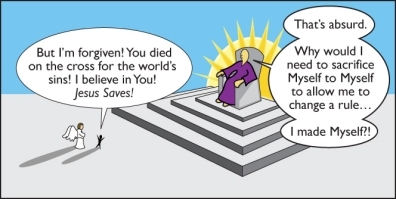
God is meant to be in charge. Why can't he simply decide to forgive us, and stop sending us to hell? Why are we expected to praise a god who saves some people from a harm that exists purely because of that god? If a fireman set fire to a house then saved half the people inside, is he a hero?
Another problem is Why didn't it work? Why didn't his 'sacrifice' convince? 7 billion people alive today, of which at least 5 billion don't believe in Jesus. Add in all the non-believers in the past and all those in the future and there's an awful lot of people not saved by Jesus's sacrifice. If it were true and convincing, then people would flock to Christianity. But the problem is that most people don't find the story credible.
How can we trust the accounts of Jesus's life and miracles, when we know the story of his birth is manufactured?
Is There a God?
If God wanted to attract sincere believers, why does he stay invisible and silent to most of humanity? If he really wanted to 'save' everybody, why wouldn't he make it a lot easier for everyone to see him?
Can King Tut, Julius Caesar or Alexander the Great be regarded as gods? (They all were proclaimed as such by their countrymen) Just as no atheist has disproved the existence of the Christian god, so no-one has disproved the existence of any of the thousands of other gods that humans have dreamed up.
Religions are based on shared stories, personal experiences, claims of divine revelation, and the words of authority figures. Not evidence or verifiable claims.
Why do Christians get so upset/defensive when questioned about their beliefs? Given that it is so impt to American politicians that they can't stop talking about it, and that they claim they want a govt based on Christian principles, why bristle when asked to explain what that means? Did the same God tell Sarah Palin, Rick Perry, Rick Santorum and Herman Caine that he wanted them to be next pres of US, or were some of them misguided?
How can a Christian be sure, for example, that Jesus actually rose from a tomb and went to heaven?
And it isn't rude to ask these sorts of Q's. Since there has never been a single bit of evidence for any god, it is justifiable to ask whether any of them are real. And everybody questions the existence of most gods - nobody thinks all gods are real.
There is a significant difference between respecting a person and respecting their ideas. I can like people who think their star signs control their lives, but I am still not going to accept their astrological ideas.
Prayer
The poorer the society, the more religious. The more prayer, you'd expect to be more secure and safest. And conversely, you'd expect the places that prayed least to be the worst places to live. But of course it isn't so. The most religious places are the most hellish places to be. On any objective measure - security, health, literacy, human rights - show a world where prayer doesn't seem to matter. The real world looks just like it would if prayer didn't work and there were no gods. Religious beliefs and prayer do not save the lives of babies or ease their suffering in any detectable way. But this is exactly what religious people claim.
Malnutrition, malaria, parasite infections are the horrible, painful and drawn out ways to die. Despite all the praying going on, children die at far greater rate in the most religious parts of the world than they do in the least religious parts.
Some Christians will argue that God/Jesus can't answer every prayer. Yet that's not what the Bible says: "And all things, whatsoever ye shall ask in prayer, believing, ye shall receive." (Matthew 21:22)

Members of every religion will tell you that they believe in their god because he has answered their prayers in circumstances that were too unusual to have been anything but divine intervention. So what do Christians think of these 'answered prayers' in other religions? The only sensible conclusion is that these people are sincere but mistaken. But of course, that is precisely how skeptics see all the claims.
Have to acknowledge the truth about prayer. If Jesus really is listening and really does fulfill the wishes of Christians, then wouldn't the entire world have noticed by now? If Christian prayers were answered at a rate above random chance and faulty interpretation, wouldn't everyone else have wanted in on the deal? The reality is that the majority of the world's religious people pray to gods other than Jesus and seem to claim the same rate of success.
So Many Religions
There are an estimated 41,000 denominations of Christianity. Some are quite flexible in their attitude to others. But others are quite dognmatic about The Rules: who exactly Jesus is, how we are supposed to worship him, and who gets into heaven - they are right and everybody else is wrong.

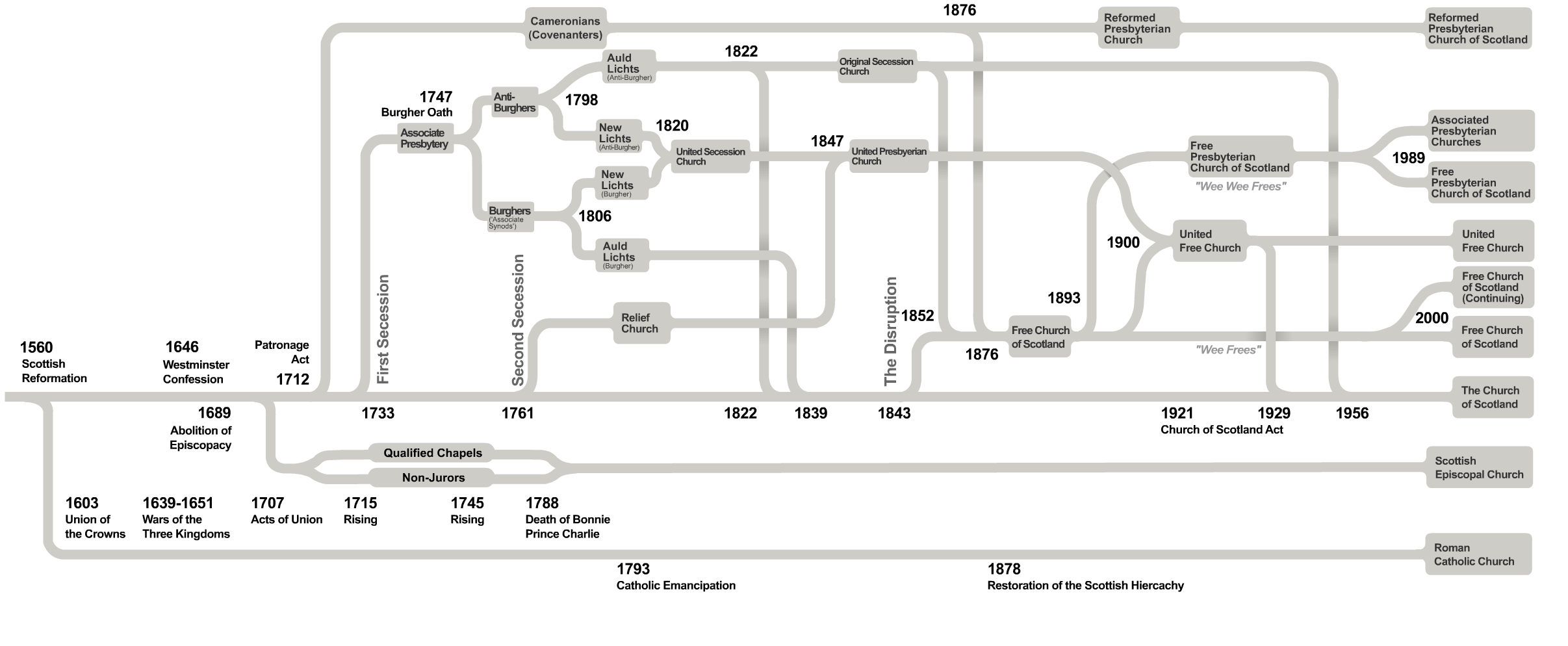
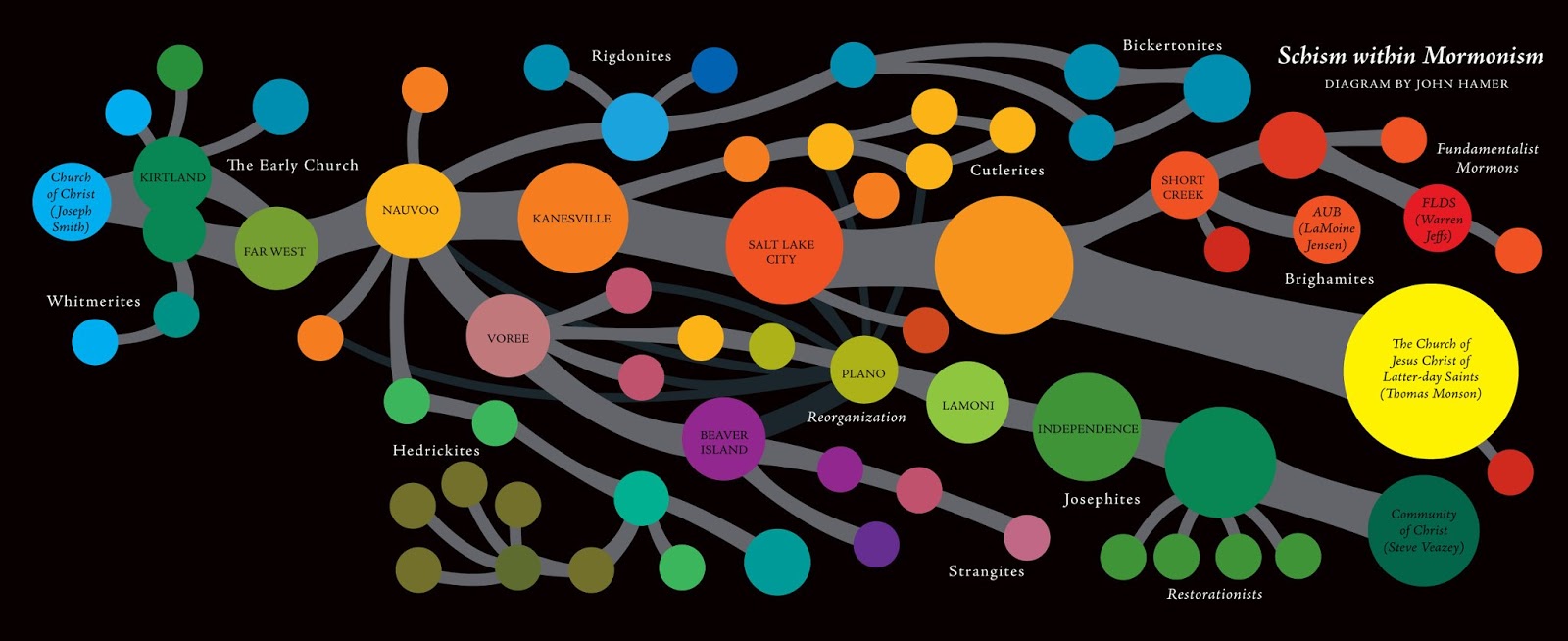
How Many Gods?
We have no idea - certainly in the millions. Hindus can't even tell you how many Hindu gods there are - estimates range from hundreds of thousands to more than three hundred million. It is undeniable that most of these must be made up from human imagination. We are a god-creating race.
Anyone can claim to be a god. Alexander the Great and Julius Caesar were annointed a gods by their people. We have no established definition of a god, except "What people decide is a God". Can't say 'has to demonstrate supernatural powers' bc nobody actually has, outside of anecdote. According to followers of every religion, their god has demonstrated his powers, so all the other ones are wrong.
The Bible makes it clear that God is aware of other gods. He says he's jealous of them and doesn't want you worshipping them. Then there are angels and demons. Considering their god-like powers, they seem to be some form of lessor gods. Satan is in chrge of Hell, in same way as Greek god Hades ran the underworld. So there seems to be a range of gods doing different jobs, just as in most polytheist religions.
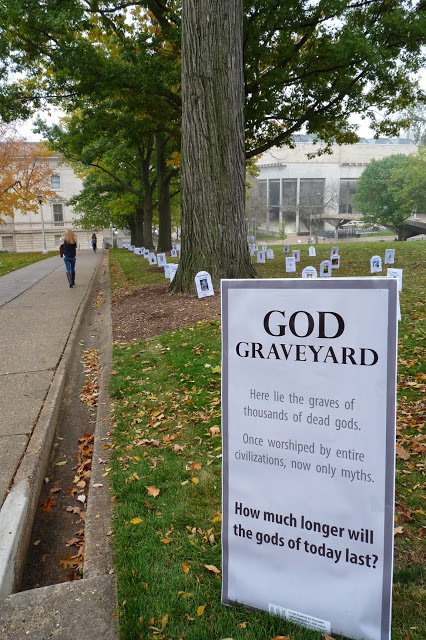
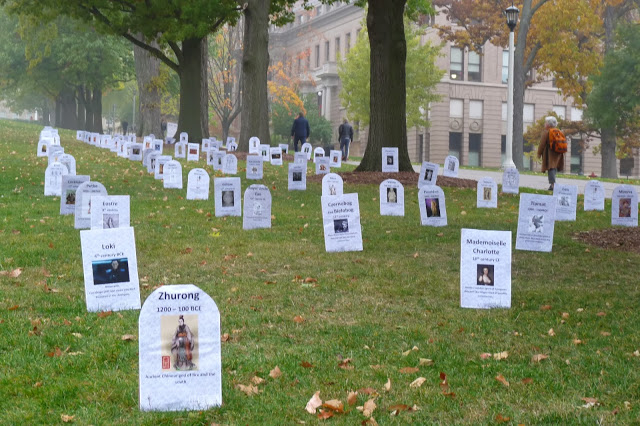
I was walking across a bridge one day, and I saw a man standing on the edge, about to jump off. So I ran over and said, "Stop! Don't do it!" "Why shouldn't I?" he said. I said, "Well, there's so much to live for!"
He said, "Like what?"
I said, "Well, are you religious or atheist?" He said, "Religious." I said, "Me too!
Are your Christian or Buddhist?" He said, "Christian." I said, "Me too!
Are you Catholic or Protestant?" He said, "Protestant." I said, Me too!
Are your Episcopalian or Baptist? He said, "Baptist!" I said, "Wow! Me too!
Are your Baptist Church of God or Baptist Church of the Lord? He said, Baptist Church of God!" I said, "Me too!
Are your Original Baptist Church of God or are you Reformed Baptist Church of God?" He said, "Reformed Baptist Church of God!" I said, "Me too!
Are you Reformed Baptist Church of God, Reformation of 1879, or Reformed Baptist Church of God, Reformation of 1915?"
He said, "Reformed Baptist Church of God, Reformation of 1915!"
I said, "Die, heretic scum!" and pushed him off.
Some Christians maintain that nothing matters except a few basic tenets about Jesus. But that can't be true, or true for most, else there would be just one big church. If the Bible was inspired by God and was meant to instruct humanity, why can't Christians agree on it?
Christianity Doesn't Make Things Better
All religions claim that (their) religion is essential for society - otherwise immorality will run unchecked. If they are correct, then the most religious societies should be the best places to live in. But the facts show the opposite. Less Christianity and less religion in general is associated with better places to live. The most religious countries are Zambia, Uganada, El Salvadore. Evidence is clear - Christian beliefs do not correlate with positive social outcomes. Even the most Christian states in US - Mississippi, Louisiana, Arkansas - fare much worse than less Christian states like Vermont, New Hampshire and Oregon.
(Just look at two clear measures - child mortality and murders. In both, the most church-going states like Louisiana rate bottom, while the secular Vermont rates top.)
Miracles
The less knowledge you have, particularly of science, the more likely you are to see a miracle. People in primitive societies see a 'miraculous' medical recovery that more advanced societies would see as routine. If you are unable to explain a result, the default explanation should not be "Jesus did it" unless you can produce evidence.
Problem with miracles is that all religions claim them, even all the ones who worship 'false' gods. Muslims and Hindus claim divine healings; countless people throughout history have seen miracles and aparitions of their particular god.
And of course the biggest question - how come the supply of miracles has dried up everywhere people have video cameras?
Read The Bible
Most Christians haven't read the Bible. They act quite surprised when confronted with the God-approved murder of babies, kidnapping and rape of virgins, tips on how to be a good slave or a good slave owner. This becomes a problem when in one breath they will (stridently) claim that everything in the Bible is true and has to be accepted 100%, and in the next say something which blatantly contradicts something the Bible says is important.
Heaven
Science explains Near Death Experiences (oxygen deprivation as brain tries to make sense of a situation where it has lost all sensory imputs) - see You Are Now Less Dumb
Conviction is no guide - no matter how strongly they say "You can't tell me (I Didn't go to Heaven)", it is no different to the people who are convinced they were abducted by aliens or visited by ghosts.
But the real kicker is that people always report they met their personal God - Christians meet Jesus, Muslims meet Allah - nobody is ever confronted with evidence that they've picked the wrong one, even though most of them, by definition, must have.
BRB
Jesus clearly and unequivocably claimed he would return soon after his crucifixion. "I tell you the truth, some who are standing here will not taste death before they see the kingdom of God come" (Mark 9:1) and "... men will see the Son of God coming in clouds with great power and glory ... I tell you the truth, this generation will certainly not pass away until all these things have happened" (Mark 13)
Of course, when that didn't happen, Christians had to come up with excuses.
Does Jesus Heal?
Christians confidently assert that he does. But then big Q - so many Christians sick and suffering - many of them very wrong. Why isn't Jesus healing them? Christian answers to this Q are very unsatisfactory. God works in mysterious ways. We can't understand God's plans. God is punishing us. God is testing our faith. They didn't have enough faith. We deserve to suffer bc Adam ate a bit of fruit.
People aren't stupid - if one religion was delivering superior health care, it would quickly become the single religion. All Christians would have to do is gather up all the unequivocible data and publish it.
It's not enough for Christians to say "I don't care about skeptics bc I know Jesus heals". If they really want to save souls, all they have to do is demonstrate, with evidence, that praying to Jesus cures. If they could do that, they would instantly convert whole of humanity.
Imagine a children's cancer ward where only non-Christians die, or societies where Christians live 40 years longer than non-Christians.
Why Did God Choose This Design?
Why create a world roiled by earthquakes, volcanoes, floods, tidal waves and hurricanes?
Why inflict parasites and debilitating diseases on little children?
Why have Nature where everything is hell-bent on killing something else, or fleeing to avoid being killed?
Why create all the trillions of worlds that we can see in space, then make it impossible for us to get there?
Why Does Place of Birth Matter So Much?
If the Bible is correct and Jesus is the only path to Heaven, why does a child born into a religious family in US have such an overwhelming advantage over a child born into a religious family in Muslim or Hindu country?
Why are Muslims and Hindus etc etc all convinced they are following the correct God?
Islam will probably have more members than Christianity by end of this century, but this is because they are having more babies, not because their message is superior.
Why Does The Bible have So Many Interpretations?



Angels
Most people have an idea of memory being like a videotape that records sights, sounds and smells for later playback. But in fact the brain edits - it tells us a story, emphasizing some dramatic bits, downplaying others. We have a little old man living in our head. When we want to remember something, we tap him on the shoulder and ask him to tell us about it. Like every good story teller, he caters for his audience, so he tells us what he thinks we want to hear. But he is careless. Sometimes he shuffles time sequences so that order of events gets confused. Or he could get completely confused and insert a memory that never actually happened to you - a scene from a movie or from something that a friend told you. But you will feel completely confident that this actually happened to you.
So how do you deal with people who are adamant that they have seen angels? All you can do is point out that through all the centuries of people claiming they exist, no-one has ever come up with verifiable proof.
End Times
Truly I say to you, there are some standing here who will not taste death until they see the Son of Man coming in his Kingdom. Matthew 16:28
If the words of Jesus cannot be trusted on this, how can you believe all the rest?
Christians tell us to prepare for apocalypse. They cite all the bad things they see in society and in nature as signs. Yet storms, volcanoes and earthquakes have always been with us, and in fact society is steadily becoming more peaceful and law-abiding. And which apocalypse should we fear? Muslims await the return of the Mahdi; Rastafarians think all blacks will have to return to Africa first; Norse legends warn of a great new flood. For the same reasons Christians reject these ideas, they should reconsider their own.
And even Christians can't agree on who will be saved. Baptized? gay? Born again? Loyal to the Pope? Tithe? Grow a beard? Have a tattoo? Every group will tell you some of these matter, but no consensus.
Suffering
If God is the source of all morality, then the question of evil must be addressed. How can a good and loving god sit idly by while billions of people over the last few thousand years, perish in agony? He must have known when he created the world that this misery would be the result, yet he went ahead with it anyway? Couldn't he have at least left the malaria parasite off the list of things to create, given that that kills a million little kids a year?
The inadequacy of the "we are being punished for the Original Sin in Garden of Eden" answer. "We"? How are we accountable for one rule infraction of our long-distant ancestor? Is there anyone alive who thinks there is a crime so heinous that the perpetrator's grandchildren should be tortured for it?
Deaths by human intervention (war, murder, abortion) are a tiny fraction of deaths by 'natural' causes (disease, earthquakes and floods). None of this fits with the supposed concept of a fair and loving God.
Atheists
Atheists aren't angry or arrogant or evil. It is simply the total absence of evidence, and the lack of good answers to these Q's, that make believing in God so difficult.
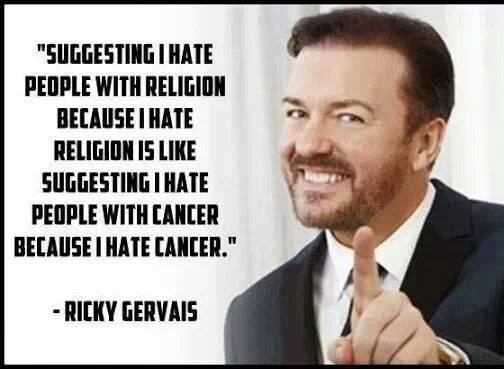
More books on Religion
Books by Title
Books by Author
Books by Topic